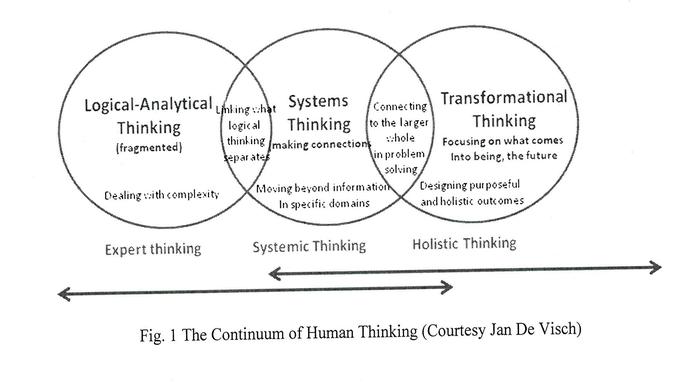
 10
10





 1
1




Although Bhaskar argued that both natural science and social science were at base naturalist, he nevertheless fully agreed with the hermeneuticists that there are differences between the subject matter of the natural and social sciences. He stated that these different in terms of:
1. Activity dependence
Social structures are dependent on human activity in a way in which natural structures are not. For instance, gravity does not depend on human beings, but capitalism does.
2. Concept dependence
Social structures cannot operate independently of some conceptualisation by agents, they are concept or belief dependent.
3. Space time dependence
Social structures are more space time dependant in general than natural structures.
4. Internal relationality
As a social scientist, one’s beliefs about the subject matter may themselves be a part of the subject matter. Or looking at it in another way, the social scientist or the philosopher of social science, are part of, are immersed in, society. They are a part of their subject matter and this means that a social scientist has to be reflexive in a way that a natural scientist does not have to be.
The best gardening course: https://gardenmastercourse.com
Permies.com FAQ
 4
4




The best gardening course: https://gardenmastercourse.com
Permies.com FAQ
 3
3




The best gardening course: https://gardenmastercourse.com
Permies.com FAQ

 5
5




- Tim's Homestead Journal - Purchase a copy of Building a Better World in Your Backyard - Purchase 6 Decks of Permaculture Cards -
- Purchase 12x Decks of Permaculture Cards - Purchase a copy of the SKIP Book - Purchase 12x copies of Building a Better World in your Backyard
 5
5




The Order of Natural Necessity: A Kind of Introduction to Critical Realism is based on the transcripts from six hours of live streamed talks given by Professor Roy Bhaskar, originator of Critical Realism, in 2014, at University College London: Institute of Education.
Drawing from the transcript of the talks and keeping as close as possible to the original intention of the talks, the book aims to present the complexity of Critical Realism in an accessible and informative way, assuming that the reader has had little exposure to both the philosophical position taken by Critical Realism and the philosophical positions that Critical Realism challenges. Which therefore makes the book ideal for anyone wanting to begin his or her investigation of CR whilst it offers the reader that is more familiar with Roy Bhaskar a handy guide to the most important feature of the three phases of his work.
Gary Hawke, who hosted and worked closely with Roy Bhaskar in producing the original streamed talks, has edited the book. He has expanded the original text addressing the questions that students raised during the live streaming through the inclusion of over a 100 footnotes, tables, and diagrams.
The best gardening course: https://gardenmastercourse.com
Permies.com FAQ
 5
5




Timothy Norton wrote:For someone that is new to the writing of Roy Bhaskar and the idea of "Critical Realism", are there certain works that are better jumping off points than others?
The best gardening course: https://gardenmastercourse.com
Permies.com FAQ












 3
3





- Tim's Homestead Journal - Purchase a copy of Building a Better World in Your Backyard - Purchase 6 Decks of Permaculture Cards -
- Purchase 12x Decks of Permaculture Cards - Purchase a copy of the SKIP Book - Purchase 12x copies of Building a Better World in your Backyard
 6
6




Perfect The Dwelling Land and support the kickstarter! https://www.kickstarter.com/projects/paulwheaton/garden-cards?ref=90v0pa
 8
8




 4
4




This is probably the most directly permaculture-related thing I've seen Bhaskar say, although it must be noted that he is not advocated for this kind of scientific work.Roy Bhaskar wrote:The applied scientist must be adept at analysing a situation as a whole, of thinking at several different levels at once, recognizing clues, piecing together diverse bits of information and assessing the likely outcomes of various courses of action.
That is actually probably my favorite thing I've seen of Roy's, and I think it would like great as a wood-burned sign hanging in Bhaskar Auditorium, for instance.Roy Bhaskar wrote:We are contingent temporary
flotsam on a sea of being.
Roy Bhaskar wrote:It is not that there are the starry heavens above and the moral law within, as Kant would have it; rather, the true basis of your virtuous existence is the fact that the starry heavens are within you, and you are within them.
Roy Bhaskar wrote:Logic merely defines how the world must be if we are to successfully apply certain techniques.

Epistemic fallacy:
This is considered the central fallacy, where people mistakenly believe that the way we can know something defines what actually exists, essentially reducing reality to our knowledge of it.
Ontological mono-valence:
This fallacy assumes that things only have one meaning or interpretation, neglecting the complex and multi-faceted nature of reality.
The "empirical" vs. "real":
Bhaskar distinguishes between the observable empirical world (what we experience) and the underlying "real" world with its causal powers, arguing that our limited perception can often obscure the true nature of reality.
Critique of positivism:
Bhaskar's concept of fallacies directly challenges positivist views that believe scientific knowledge directly reflects reality, as he argues that our methods of inquiry can be influenced by our inherent biases.
 9
9




"We carry a new world here, in our hearts..." --Buenaventura Durruti
"Don't wish it were easier. Instead, wish you were better." --Jim Rohn

|
the struggle IS the education. Wise old tiny ad:
Learn Permaculture through a little hard work
https://wheaton-labs.com/bootcamp
|








